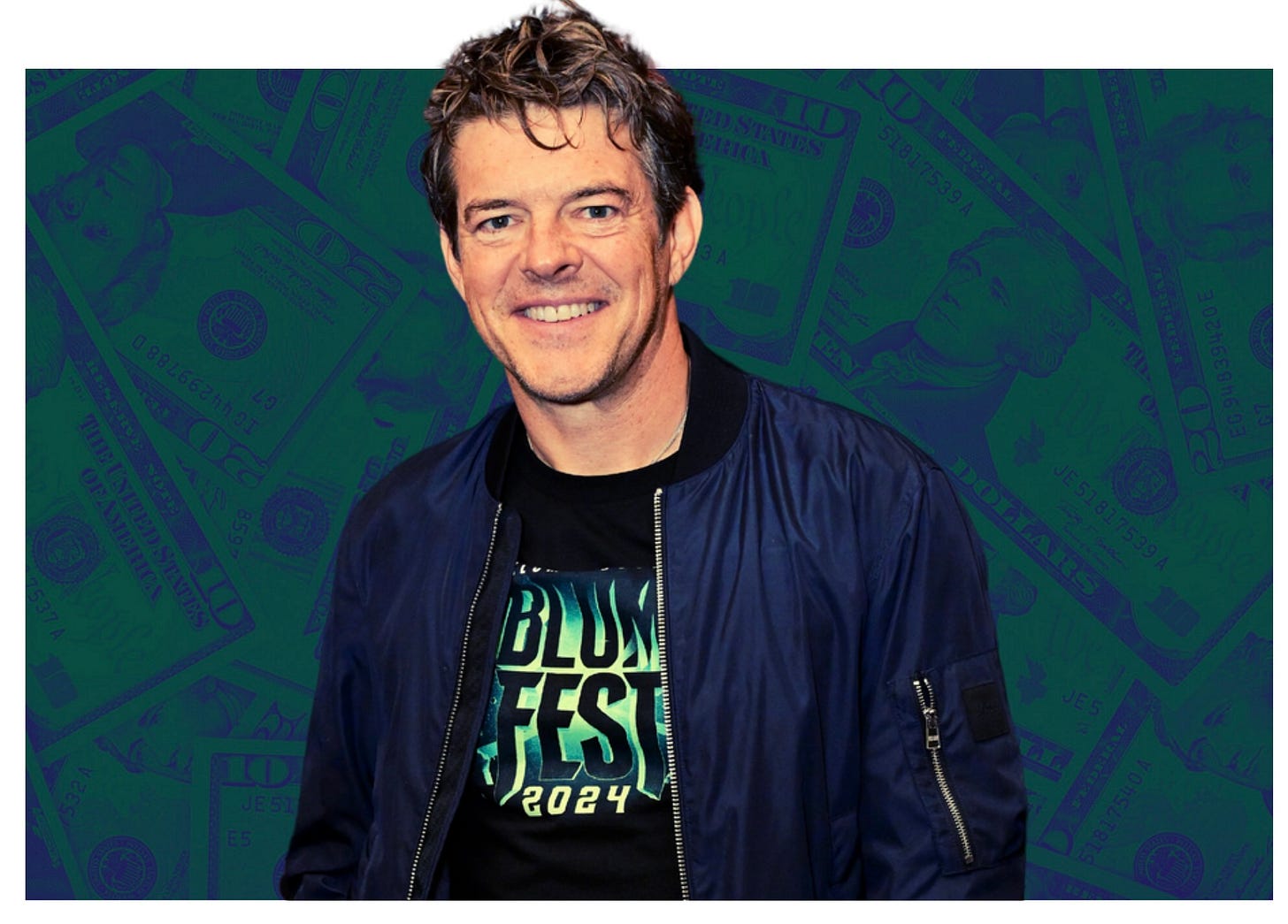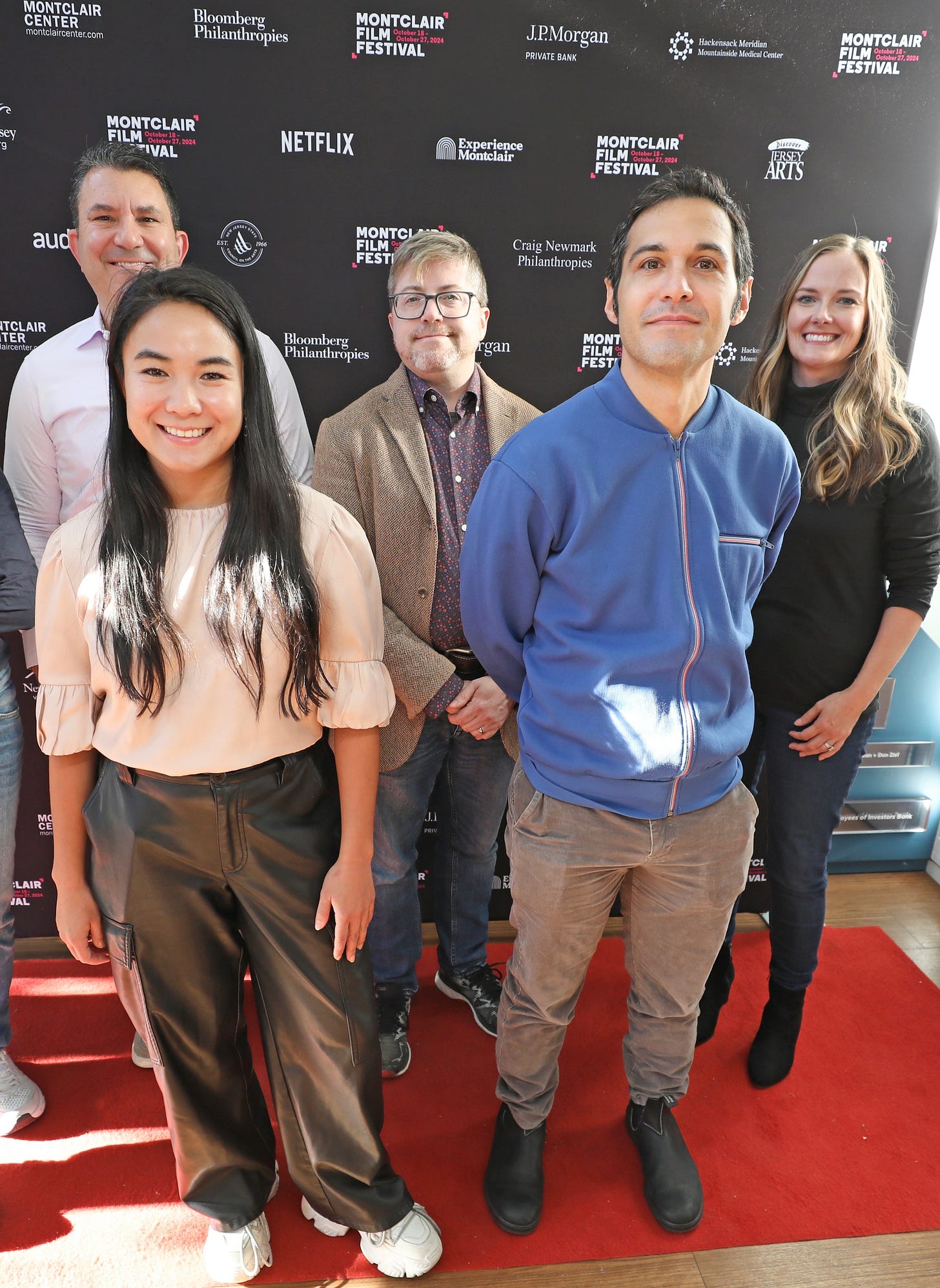Jason Blum on Deals, Sequels & AI: 'TV and Movies are Better if Artists Have Equity'
The Blumhouse CEO’s brutally honest convo about the state of the industry

Ashley Cullins writes about agents, lawyers and top dealmakers in entertainment for paid subscribers (every other Tuesday). She recently covered the steep price of Saudi money for Hollywood, the 'Shocktember' of AI deals, and how WME and CAA podcast agents are scoring nine-figure deals. You can reach her at ashley@theankler.com
Today I’m sharing a fascinating conversation I had with Jason Blum about the state of the industry, horror and what he thinks is working (and not) at the box office, in talent deals, and in the industry. And how his company, Blumhouse, is growing through its own dealmaking and partnerships.
But first (and this is related), I moderated an Ankler panel about AI and Hollywood at the Montclair Film Festival on Saturday with director Michaela Ternasky-Holland, GK Digital Ventures CEO Greg Kahn, Cornell Law professor James Grimmelmann and Eric Kohn, head of development & strategy at Harmony Korine’s startup Edglrd. It’s fair to say minds in the audience were blown about the implications of what’s already here and what’s coming — some of which will be the subject of future Dealmakers columns (and live in audio in the Anklerverse soon in case you couldn’t be there).

Blum has been at the center of the AI conversation with the recent announcement that he’s made a deal with Meta to test its Movie Gen AI video tools. “If it comes,” Blum tells me when our conversation turned to AI, “I want to understand it and know about it.”
It was another milestone in AI’s march into the industry, and another instance of Blumhouse breaking the mold from Hollywood norms. From its ultra-low budget hit Paranormal Activity (now a billion-dollar franchise) to its staggering box office run last year with Five Nights at Freddy’s, Insidious: The Red Door, M3GAN and The Exorcist: Believer racking up $800 million worldwide, Blumhouse has created that rarity in entertainment: A corporate brand consumers love.
But with horror an increasingly popular genre and competition from all corners — think IFC Films’ Late Night with the Devil to NEON’s Longlegs to Cineverse’s Terrifier 3 — even a stalwart like Blumhouse can’t become complacent. Its biggest hit this year has been Speak No Evil, which grossed $76 million globally on a $15 million budget; Longlegs is the biggest horror hit of 2024, grossing $109 million globally on a budget of less than $10 million.
Deals are a significant component to Blum’s strategy. Blumhouse completed its merger with James Wan’s Atomic Monster (Insidious, The Conjuring) earlier this year. “The only way we can really grow is to make more movies,” Blum tells me. “It's easy to make more movies, but it's very hard to make more good movies. It is my view that the only way we could increase our output without our quality going down was to have another creator as part of the company as opposed to hiring more executives.” (First up from their partnership will be M3GAN 2.0 next June.)
In April alone, Blumhouse struck strategic pacts with Lionsgate (a multi-picture deal to reimagine films from the Lionsgate library, starting with The Blair Witch Project) and iHeart Media to extend their relationship to produce horror podcasts. (The most recent, Dream Sequence — a 10-episode narrative about two estranged sisters and a scary dream-recording machine — debuted in August.) The company is also venturing further into live experiences: This year it took over The Stanley Hotel in Estes Park, Colo. (famous for inspiring the setting of The Shining) in partnership with Peacock.
Given Blum’s frenzy of activity, it felt the right time for a chat. Today you’ll learn about:
Blum’s message to agents, managers and lawyers to reimagine how they structure deals
Why he thinks the incentives between representation and artists are not aligned
Why Blum made the Meta AI partnership and what he hopes to achieve
Why he has altered the company’s ratio of originals to sequels
What percentage of a movie’s success he attributes to marketing
How to build a diverse slate even as you operate in one genre
When a movie should have a sequel
The optimal budget for an original horror movie
Blum’s goals in all his projects beyond movies



